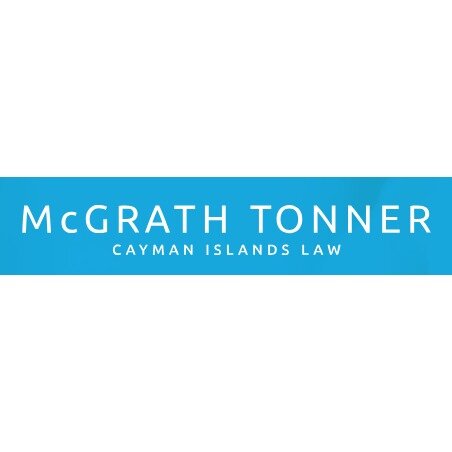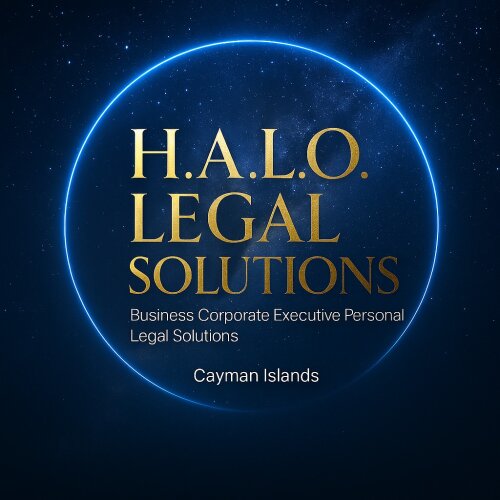Best Equity Capital Markets Lawyers in George Town
Share your needs with us, get contacted by law firms.
Free. Takes 2 min.
List of the best lawyers in George Town, Cayman Islands
About Equity Capital Markets Law in George Town, Cayman Islands
Equity Capital Markets (ECM) law in George Town, Cayman Islands, plays a crucial role in facilitating the raising of capital by businesses through the issuance of equity securities such as shares. As the financial center of the Cayman Islands, George Town is a preferred jurisdiction for international companies seeking to list on global stock exchanges or conduct initial public offerings (IPOs), secondary offerings, and other equity transactions. The Cayman Islands is known for its flexible legal and regulatory environment, tax neutrality, and robust investor protection, making it an attractive location for both issuers and investors worldwide.
Why You May Need a Lawyer
Navigating the complex landscape of Equity Capital Markets can be difficult without legal guidance. Common situations where a lawyer's help is crucial include:
- Advising on structuring and formation of Cayman Islands companies for equity offerings
- Assisting with IPOs or public listings on international exchanges using Cayman entities
- Ensuring compliance with local and international securities laws and regulations
- Drafting and reviewing prospectuses, offering documents, and shareholder agreements
- Managing legal due diligence for cross-border and domestic equity issuances
- Advising on takeover rules, corporate governance, and ongoing disclosure obligations
- Mitigating risks of regulatory violations or disputes related to equity transactions
Lawyers can help streamline ECM transactions, ensure legal compliance, and protect stakeholder interests throughout the capital raising process.
Local Laws Overview
The Cayman Islands does not have its own stock exchange regulations comparable to many larger jurisdictions but does have a solid legal framework supporting ECM activity:
- Companies Act (2023 Revision): Provides the main legislative framework for Cayman companies, including those seeking to raise capital.
- Securities Investment Business Act (SIBA): Regulates certain securities offerings and activities, particularly investment services.
- Cayman Islands Stock Exchange (CSX) Rules: Offers a regulated venue for listings, with its own listing and continuing obligations.
- No Direct Taxation: No corporate, income, capital gains, or withholding taxes on equity transfers, which is advantageous for investors.
- International Compliance: The Cayman Islands adheres to global best practices on anti-money laundering (AML), beneficial ownership disclosure, and corporate transparency.
Given that many Cayman companies seek listings overseas such as in London, Hong Kong, or New York, a sound understanding of both local and foreign regulatory intersections is required.
Frequently Asked Questions
What is an equity capital market transaction in the Cayman Islands?
It refers to the process where companies raise funds by issuing shares or equity securities, normally involving Cayman-domiciled companies either listing on a stock exchange or conducting private placements.
Why are Cayman companies frequently used for international listings?
The ease of formation, legal certainty, tax neutrality, and familiarity with global listing requirements make Cayman companies popular for international flotation and investment.
Can foreign investors freely participate in Cayman equity offerings?
Yes, the Cayman Islands imposes no restrictions on foreign ownership or investment in Cayman-incorporated entities, subject to regulatory compliance and due diligence.
Who regulates equity offerings in the Cayman Islands?
The Cayman Islands Monetary Authority (CIMA) oversees certain regulated activities, while the Cayman Islands Stock Exchange (CSX) supervises locally listed companies. Overseas listings follow the relevant foreign regulatory authority.
Do Cayman law requirements apply if a company lists overseas?
Cayman company law continues to govern corporate matters, such as shareholder rights and corporate governance, while securities law compliance is largely dictated by the exchange where the listing takes place.
What are the typical legal documents needed for an ECM transaction?
These include constitutional documents, board resolutions, subscription agreements, prospectuses or offering circulars, and legal opinions.
What investor protections exist under Cayman law?
While the Cayman legal environment is flexible, there are rules on shareholder meetings, minority protections, and directors' fiduciary duties embedded in the Companies Act.
Are prospectuses required for all equity offerings?
A prospectus is usually required for offerings to the public or listings on the CSX; private placements to professional investors may be exempt but still require appropriate disclosures.
Can the identity of shareholders remain private?
The Cayman Islands maintains a register of shareholders but does not make this register public. However, recent international transparency rules require certain disclosures to competent authorities.
What are the ongoing compliance obligations for listed entities?
Listed companies must comply with the continued listing rules of their exchange, file necessary reports, maintain proper records, and meet AML standards.
Additional Resources
- Cayman Islands Monetary Authority (CIMA) - Regulator of financial services and securities activities
- Cayman Islands Stock Exchange (CSX) - For current listing rules and market updates
- Cayman Islands Department for International Tax Cooperation - For information on compliance and reporting
- Cayman Islands Law Society - Directory of local law firms and practitioners
- Chamber of Commerce - Guidance for businesses and investors in George Town
Next Steps
If you are considering an ECM transaction or require legal advice relating to equity capital markets in George Town, Cayman Islands, consider the following steps:
- Clarify your objectives and the nature of the transaction or legal issue
- Gather all relevant corporate documents and information about your business
- Consult a qualified Cayman Islands lawyer with ECM experience, ideally from a reputable law firm in George Town
- Discuss your plans openly to identify regulatory requirements, risks, and compliance issues early
- Request a clear outline of the legal work, timelines, and potential costs involved
- Stay informed of ongoing developments in Cayman corporate and securities law as you progress
Engaging skilled local legal counsel is the best way to ensure your interests are protected, compliance is maintained, and your market goals are achieved smoothly.
Lawzana helps you find the best lawyers and law firms in George Town through a curated and pre-screened list of qualified legal professionals. Our platform offers rankings and detailed profiles of attorneys and law firms, allowing you to compare based on practice areas, including Equity Capital Markets, experience, and client feedback.
Each profile includes a description of the firm's areas of practice, client reviews, team members and partners, year of establishment, spoken languages, office locations, contact information, social media presence, and any published articles or resources. Most firms on our platform speak English and are experienced in both local and international legal matters.
Get a quote from top-rated law firms in George Town, Cayman Islands — quickly, securely, and without unnecessary hassle.
Disclaimer:
The information provided on this page is for general informational purposes only and does not constitute legal advice. While we strive to ensure the accuracy and relevance of the content, legal information may change over time, and interpretations of the law can vary. You should always consult with a qualified legal professional for advice specific to your situation.
We disclaim all liability for actions taken or not taken based on the content of this page. If you believe any information is incorrect or outdated, please contact us, and we will review and update it where appropriate.
















